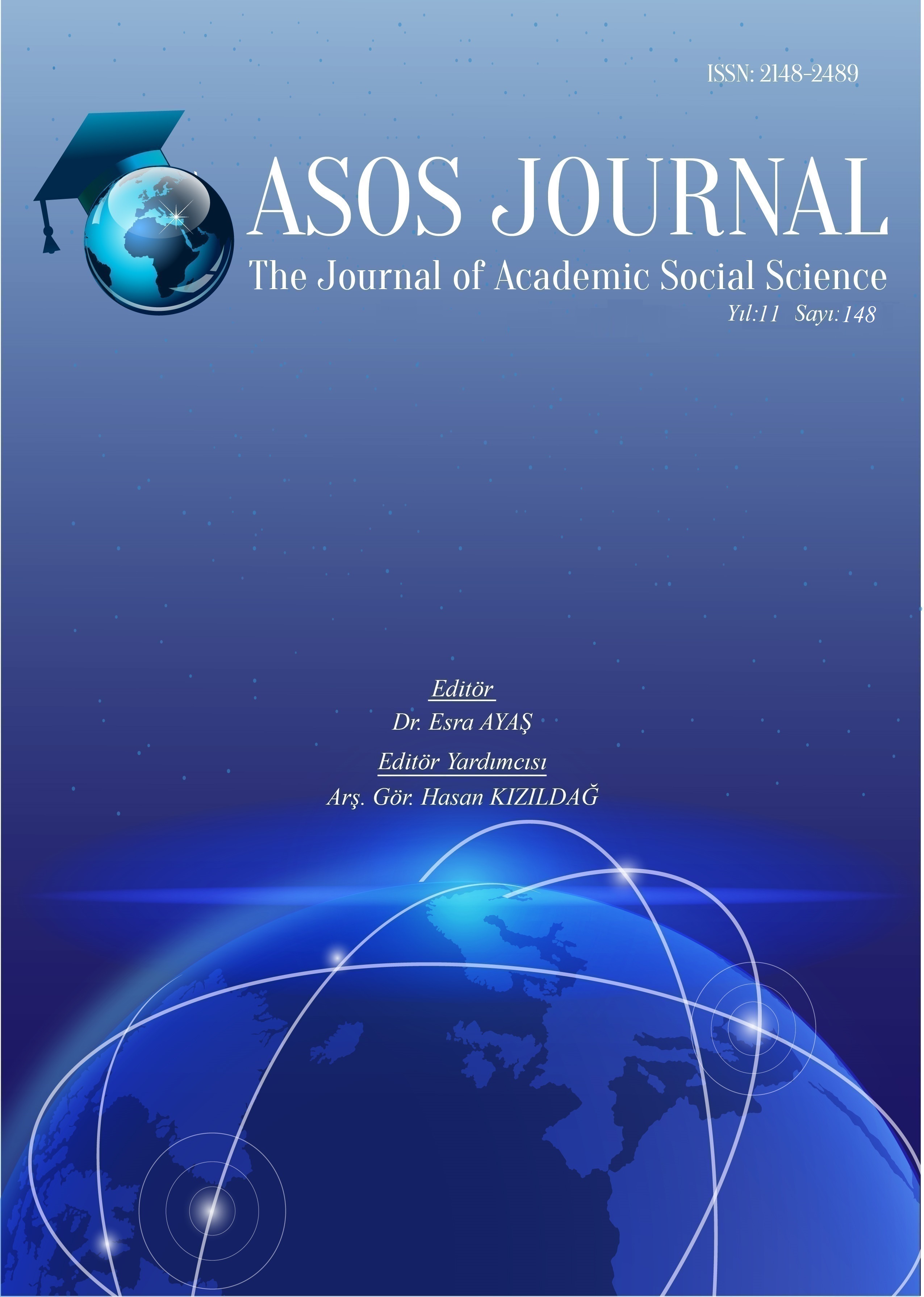Author :
Abstract
Bu çalışma, TÜBİTAK tarafından yayınlanan kitaplardan seçilen çocuk kitaplarının, eleştirel düşünme becerisinin alt becerisi olan yorumlama becerisine uygunluğu açısından incelenmesi amacıyla yapılmıştır. Araştırmada TÜBİTAK tarafından yedi ve sekiz yaş grubu çocuklar için yayımlanmış 20 kitap esas alınmıştır. İncelenen kitapların adları TÜBİTAK’ın resmi satış sitesinden (https://esatis.tubitak.gov.tr/) alınmıştır. Kitaplar seçilirken konuların farklı olmasına dikkat edilmiştir. Araştırma verilerini toplamak için, TÜBİTAK tarafından yayımlanan çocuk kitaplarının sanal satış mağazası ziyaret edilmiş ve çocuklara yönelik satışta olan çocuk kitaplarının tespiti yapılmıştır. Kitaplar yedi ve sekiz yaş olarak sınırlandırılmıştır. Verilerin toplanması için nitel içerik çözümlemesi içinde yer alan veri toplama tekniklerinden “doküman incelemesi” tekniği kullanılmıştır. TÜBİTAK’ın resmi satış sayfasından belirlenen çocuk kitapları tek tek okunmuş, eleştirel düşünme becerilerinin alt becerisi olan yorumlama becerilerine uygunluğu incelenmiştir. Araştırmada “TÜBİTAK Çocuk Kitapları Yorumlama Becerisini hangi düzeyde içermektedir?” sorusuna yanıt aranmıştır. TÜBİTAK Çocuk Kitapları Yorumlama Becerisi açısından değerlendirilirken “Sağlıyor, kısmen sağlıyor, sağlamıyor, geçerli değil” olmak üzere dört kritere bağlı kalınmıştır. Yorunlama becerisini oluşturan sınıflandırma, önemini çözme ve aydınlatma becerileri açısından “Kitap çocukların sınıflandırma becerilerini desteklemektedir?” sorusuna bakıldığında incelenen 20 TÜBİTAK çocuk kitabının sekizinin bu açıdan kriteri sağladığı, on ikisinin ise sağlamadığı görülmüştür. “Kitap çocukların önemini çözme becerilerini desteklemektedir?” sorusuna bakıldığında incelenen 20 TÜBİTAK çocuk kitabının yirmisinin de bu açıdan kriteri sağladığı görülmüştür. “Kitap çocukların anlamını aydınlatma becerilerini desteklemektedir?” sorusuna bakıldığında ise incelenen 20 TÜBİTAK çocuk kitabının yirmisinin de bu açıdan kriteri sağladığı görülmüştür. Dolayısıyla; TÜBİTAK çocuk kitapları eleştirel düşünme becerilerinin alt becerisi olan yorumlama becerisine göre incelendiğinde; genel olarak çocuk kitaplarının yorumlama becerilerine hitap eden bir yapıda olduğu görülmüştür.
Keywords
Abstract
This study was conducted to examine children's books selected from the books published by TUBITAK in terms of their suitability for interpretation skill, which is a sub-skill of critical thinking skill. The population and sample of the study were based on 20 books published by TUBITAK for children aged seven and eight. The titles of the books examined were taken from TUBITAK's official sales website (https://esatis.tubitak.gov.tr/). While selecting the books, care was taken to ensure that the subjects were different. In order to collect the research data, the virtual sales store of children's books published by TUBITAK was visited and the children's books for children were identified. The books were limited to ages seven and eight. The "document analysis" technique, one of the data collection techniques within qualitative content analysis, was used to collect the data. The children's books identified from the official sales page of TUBITAK were read one by one, and their suitability for interpretation skills, which are sub-skills of critical thinking skills, was examined. In the research, the first sub-objective of critical thinking skills, "At what level do TUBITAK Children's Books contain Interpretation Skills?" was sought to be answered. While evaluating TUBITAK Children's Books in terms of Interpretation Skills, four criteria were adhered to: "Provides, partially provides, does not provide, does not apply". When the question "The book supports children's classification skills." was examined, it was seen that eight of the 20 TUBITAK children's books met the criterion in this respect, while twelve did not. When the question "The book supports children's ability to solve the importance of the book" was examined, it was seen that twenty of the 20 TUBITAK children's books met the criteria in this respect. When the question "The book supports children's ability to clarify its meaning" was examined, it was seen that twenty of the 20 TUBITAK children's books met the criteria in this respect. Therefore, when TUBITAK children's books were analyzed according to the interpretation skill, which is a sub-skill of critical thinking skills, it was seen that children's books in general have a structure that addresses interpretation skills.
